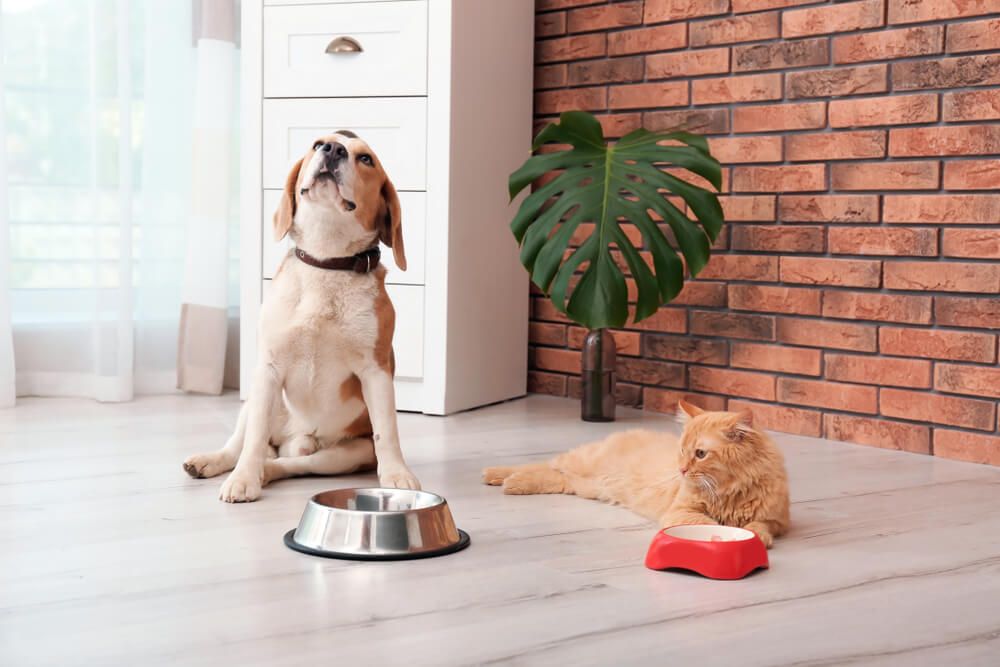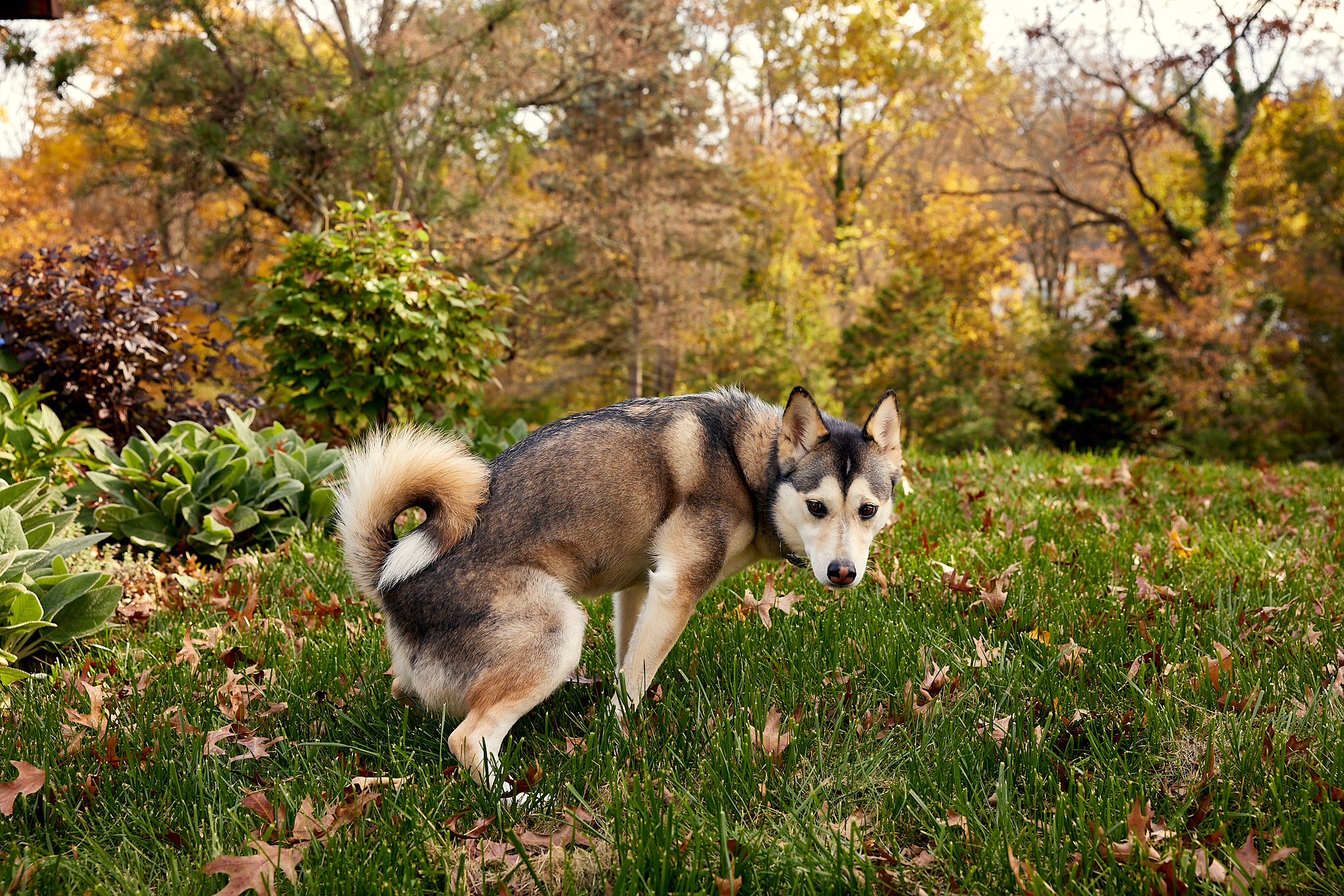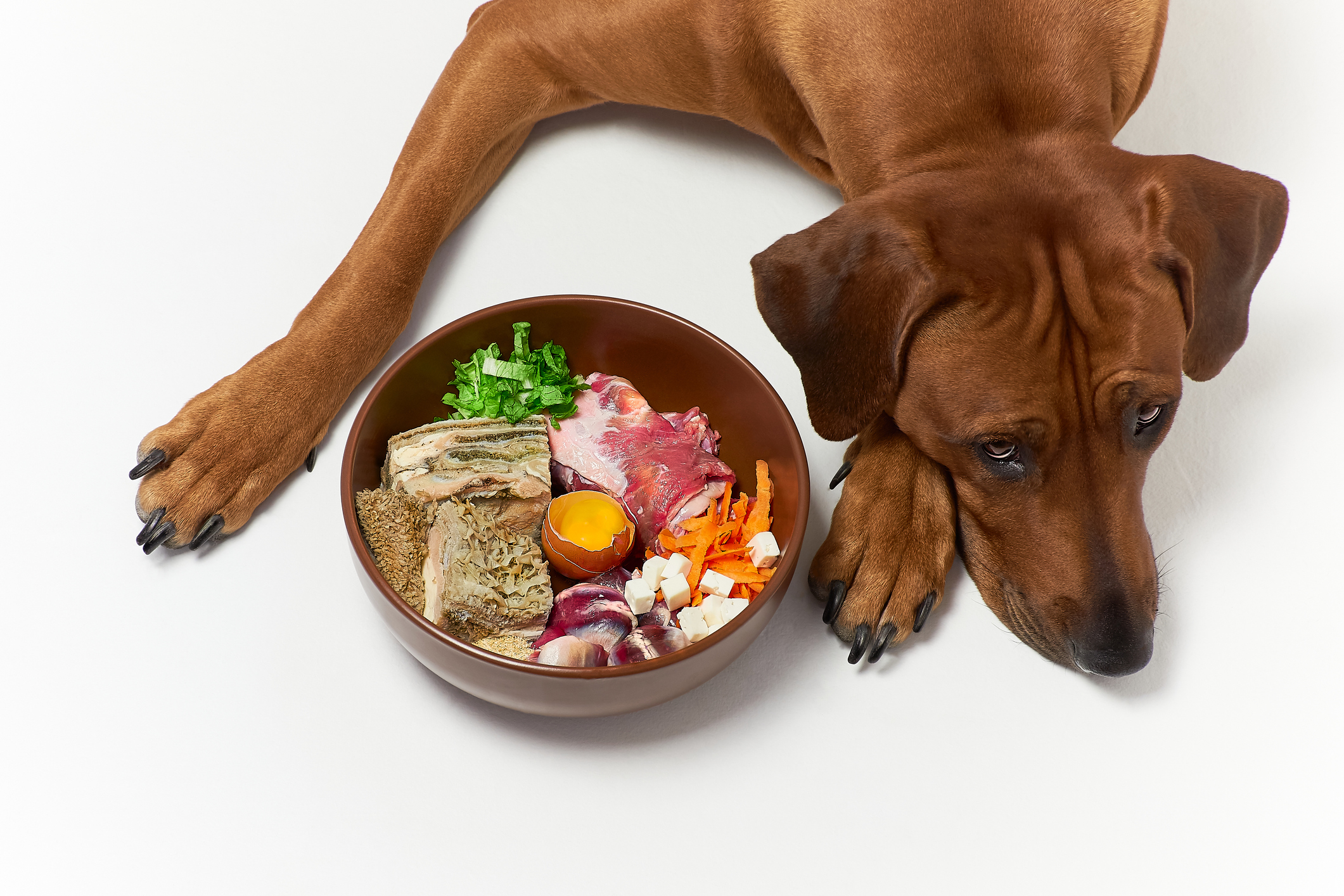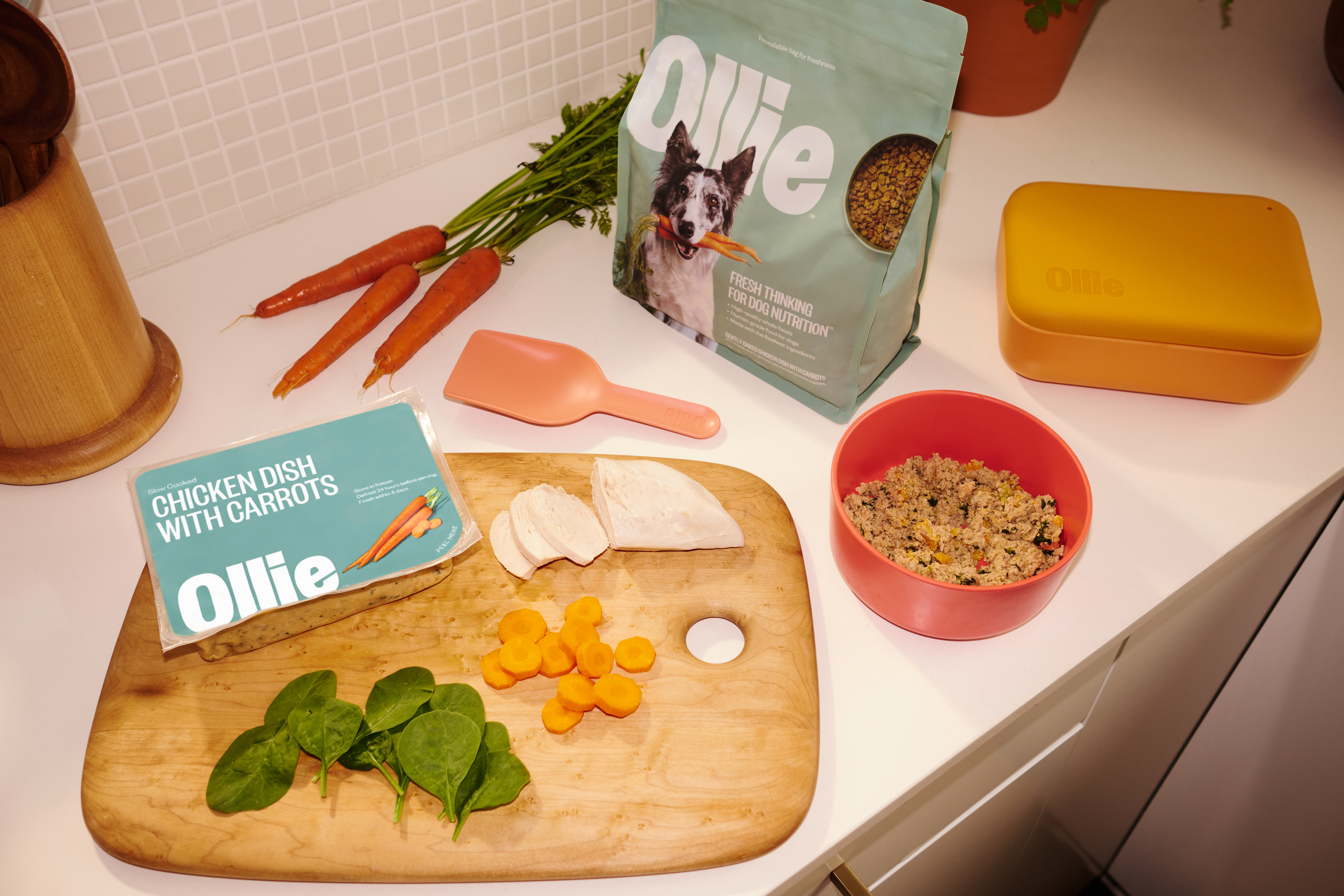Hey Ollie blog readers! We’re offering you an exclusive 60% OFF your starter box! Try now!
The beginning of the year brings New Year’s resolutions for many pet parents. These might include taking more walks with your pup, eating healthier, and even shedding a few pounds. But what about your dog? If you’re cleaning up your diet should you also consider a new diet for them too?
There are many reasons why you might want to put your pup on a new diet. But, before you do, have a chat with your vet to make sure your new plan is the right one. We looked at 6 signs you might want to talk to your vet dog’s vet about making some dietary changes.
6 signs your dog might need a new diet
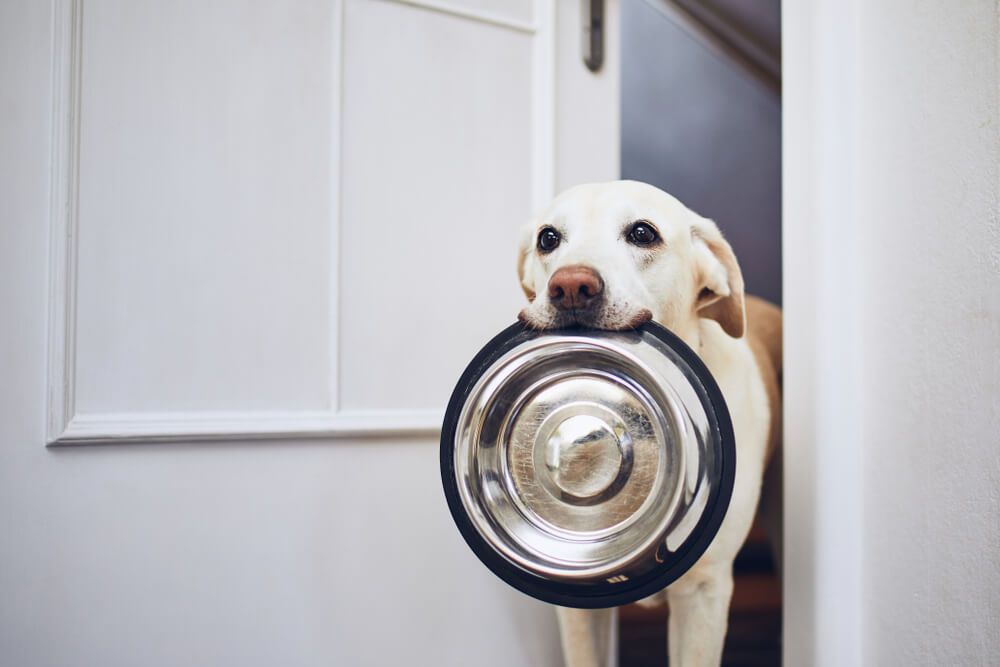
1. They’ve put on a few pounds
If you’ve noticed a little holiday (or even pre-holiday) weight gain for your pup you might want to talk to your vet about making a change to your dog’s diet. This might include switching to smaller more frequent meals or decreasing portion sizes. They may also suggest cutting back on the treats or swapping out higher-calorie snacks for something healthier like cucumbers or berries. These yummy treats are loaded with water (and fiber) to help your pup feel satisfied and full. Before making any dietary changes, you might also want to take your pup to the vet for an exam to make sure there isn’t a medical reason for the weight gain. One that requires more than just a healthier diet to manage.
2. They’ve lost a few (or more than a few) pounds
If you’ve noticed that your dog is losing weight or having trouble keeping weight on, you might need to make a dietary change. But first, you’ll want your vet to rule out any kind of underlying medical issue that needs to be treated first. Your vet can help you safely increase your pup’s calories. This might include more frequent or larger meals or adding more protein and healthy fats.
3. They have dry, itchy skin
If your dog has dry, itchy skin or a rash it might be a sign of food allergies. Since this isn’t the most common cause of dry, itchy skin you’ll want to rule out other causes like environmental allergies or contact with some type of irritant before making dietary changes. If you do suspect the issue is what your dog is eating, your vet might be able to help you with an elimination diet. This is where you eliminate the potential allergen for a period of time to see if symptoms improve. Your vet may also recommend some bloodwork or other diagnostic testing to get to the root cause.
4. Their exercise or routine has changed
If your dog was competing in elite sports all summer or hiking with you for miles and now is taking some time off for the winter, they might need a change in their diet. This might be temporary if they’re just taking a break from more intense athletic activity. Conversely, if your once sedentary dog is now taking a morning walk or jogging a few miles with you, they might need some additional fuel. Remember to consult your vet about changes to your dog’s activity level too! It will help them get a full picture of your dog’s dietary needs and they’ll be able to help you ensure the exercise program is safe for your dog.
5. They’re getting older
As dog’s age their metabolism slows down and their nutritional needs may change. While there are some dog foods that are specifically formulated for senior citizens, you can also make adjustments to the food your dog eats if it is approved for all life stages. This might mean smaller portions or supplementing with fresh foods like salmon, fish oil, yogurt, or fresh fruits and vegetables.
Another reason you may need to adjust the diet of a senior pup is if they are having trouble chewing. If your dog is eating dry kibble and it is hard for them to chew, you might want to talk to your vet about switching to wet or fresh food (like Ollie).
6. They’re showing signs they’re bored with their food
If your dog has been eating the same flavor of kibble every day for years, they might be a little bit bored. While it’s perfectly safe to feed your dog the same food every day (as long as it meets AAFCO standards for complete and balanced nutrition for your dog’s life stage). There’s still good reason to switch it up sometimes.
In addition to keeping things interesting, different food recipes use different proteins and have slightly different macronutrient profiles. Switching can expose your dog to a variety of flavors, which can also help ensure you don’t have a picky pup who will only eat one specific kind of food. This can be helpful if you’re ever in a position where their usual is temporarily (or permanently) not available.
When making a switch, it’s still important to transition slowly so you don’t accidentally make your dog sick. We recommend taking a few days to transition (maybe a little longer if your dog has been eating the same food for a really, really long time).
Ollie makes it easy for pet parents to adjust their dog’s diet at any time. When you subscribe we’ll ask you a lot of questions about your dog’s age, weigh, breed, activity levels, and any allergies they might have to help us formulate the right meal plan for them. But as things change, it’s easy to adjust portion sizes – or even switch recipes as you need to. Want to rotate recipes to give your dog some variety, you can easily do that too!
The Ollie blog is devoted to helping pet parents lead healthier lives with their pups. If you want to learn more about our fresh, human-grade food, check out MyOllie.com.
Tagged As:

The nutrition your dog needs,
the food they want.

Enjoying our articles? Subscribe our Newsletters and get new articles directly to your inbox
You might also like
3 July 2025
5 MINS READ
How Fresh Food Can Help Your Dog Have Perfect Poops
As a pup parent, you’re likely very familiar with your dog’s bathroom habits. While it may not be the most glamorous part of taking care of your pup, a dog’s stool can be one of the most dir…
by Ollie Pets
3 July 2025
5 MINS READ
Understanding the Risks of Raw Dog Food
When it comes to choosing the right diet for your dog, understanding the full picture is crucial for making an informed decision. In this article, we’ll dig deeper into what defines a raw diet, …
by Ollie Pets
3 July 2025
4 MINS READ
Understanding a Balanced Diet for Your Dog
As a dedicated pet parent, you want to provide the best for your dog, and that starts with their food bowl. We all understand the basics of a balanced diet for ourselves, but what does that look l…
by Ollie Pets
